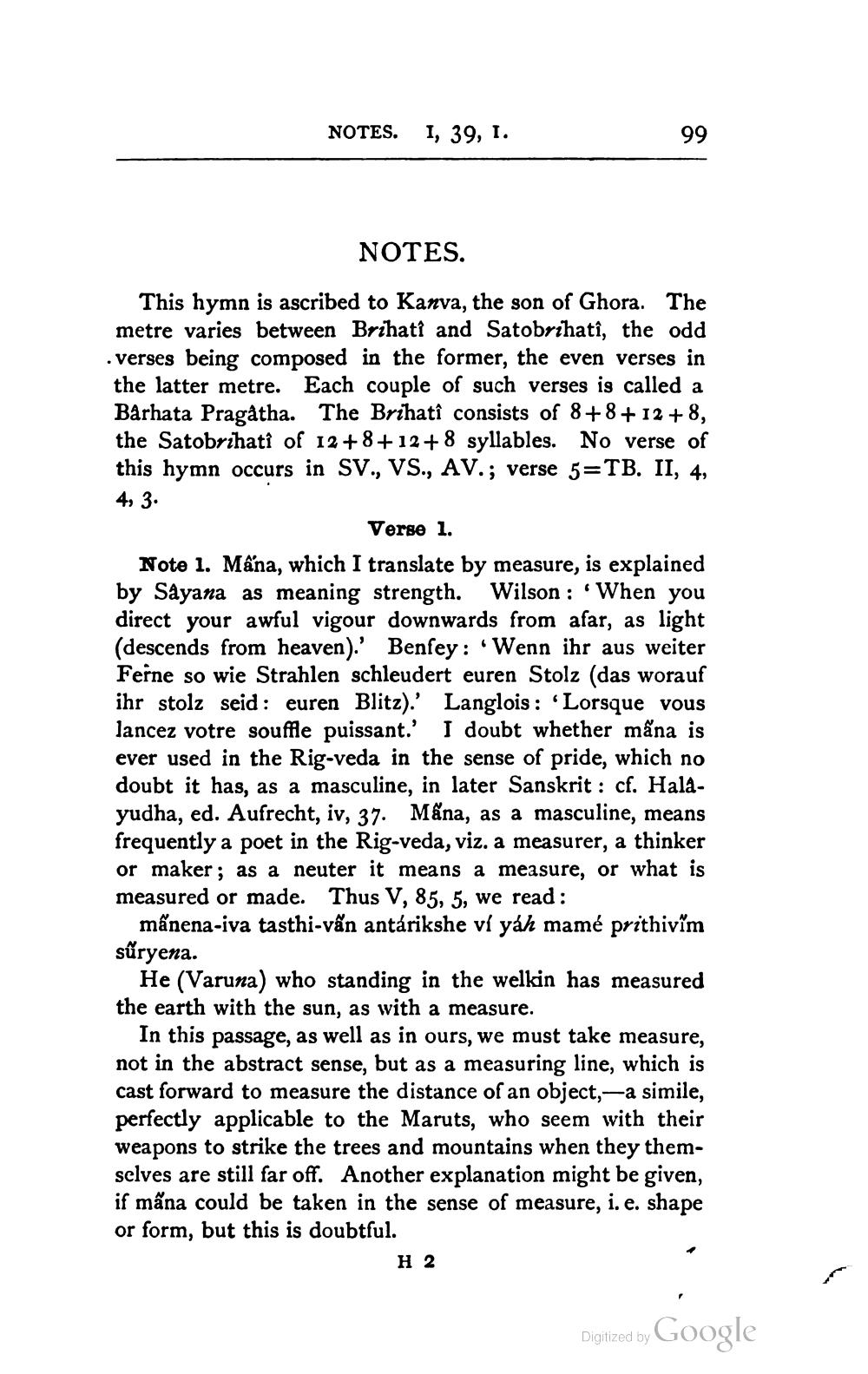________________
NOTES. I, 39, 1.
99
NOTES.
This hymn is ascribed to Kanva, the son of Ghora. The metre varies between Brihati and Satobrihatî, the odd .verses being composed in the former, the even verses in the latter metre. Each couple of such verses is called a Barhata Pragatha. The Brihatî consists of 8+8+ 12 +8, the Satobrihati of 12+8+12+8 syllables. No verse of this hymn occurs in SV., VS., AV.; verse 5=TB. II, 4, 4, 3.
Verse 1. Note 1. Mana, which I translate by measure, is explained by Sayana as meaning strength. Wilson : When you direct your awful vigour downwards from afar, as light (descends from heaven).' Benfey: Wenn ihr aus weiter Feine so wie Strahlen schleudert euren Stolz (das worauf ihr stolz seid: euren Blitz).' Langlois : ‘Lorsque vous lancez votre souffle puissant.' I doubt whether mâna is ever used in the Rig-veda in the sense of pride, which no doubt it has, as a masculine, in later Sanskrit : cf. Halayudha, ed. Aufrecht, iv, 37. Måna, as a masculine, means frequently a poet in the Rig-veda, viz. a measurer, a thinker or maker; as a neuter it means a measure, or what is measured or made. Thus V, 85, 5, we read:
mấnena-iva tasthi-vấn antarikshe vi yah mamé prithivim sûryena.
He (Varuna) who standing in the welkin has measured the earth with the sun, as with a measure.
In this passage, as well as in ours, we must take measure, not in the abstract sense, but as a measuring line, which is cast forward to measure the distance of an object,-a simile, perfectly applicable to the Maruts, who seem with their weapons to strike the trees and mountains when they themselves are still far off. Another explanation might be given, if mấna could be taken in the sense of measure, i.e. shape or form, but this is doubtful.
H 2
Digitized by Google




